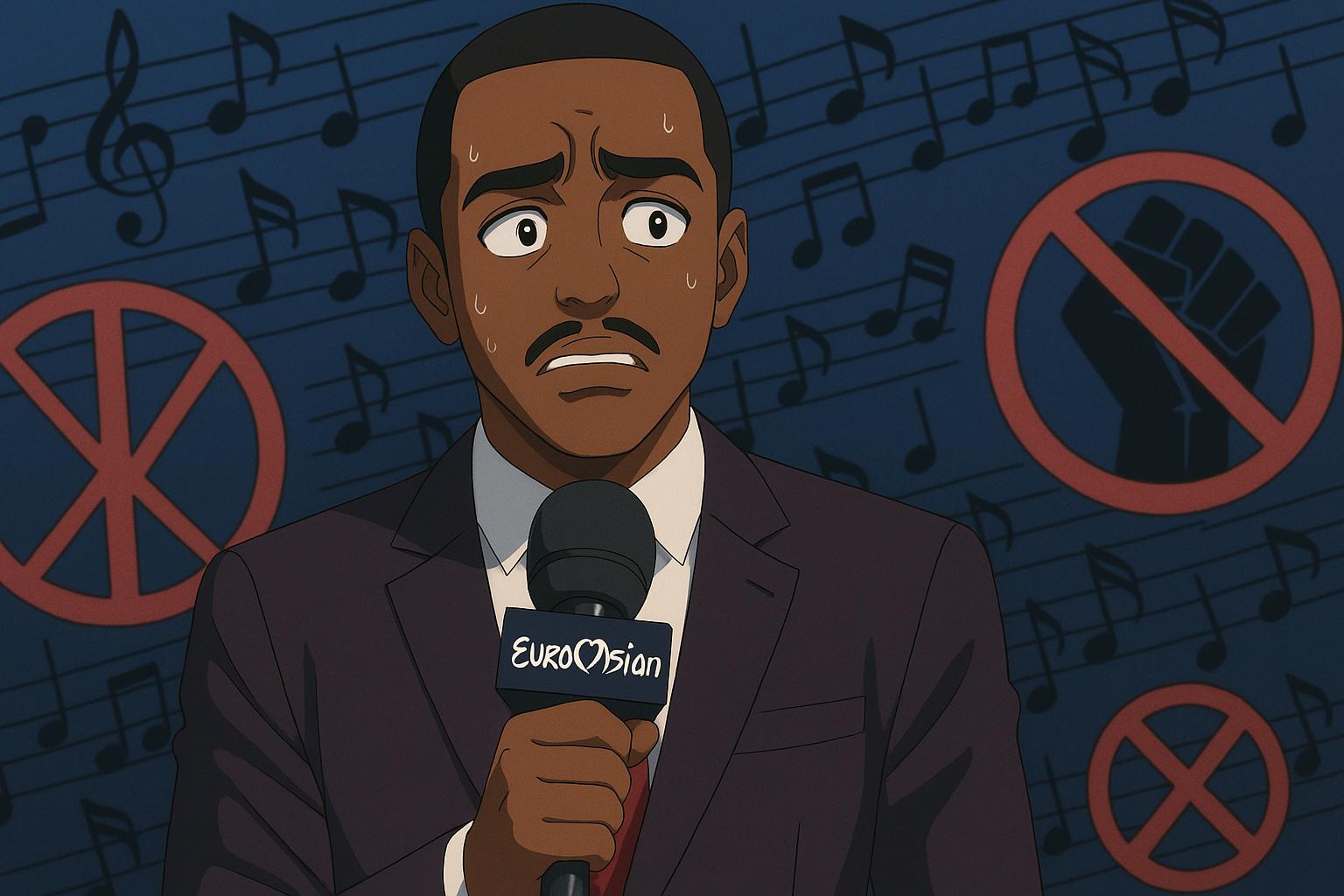Recent events surrounding the Eurovision Song Contest have generated considerable media buzz, particularly concerning Ncuti Gatwa, the actor best known for his role in 'Doctor Who'. Reports have surfaced indicating that the BBC – the broadcaster overseeing the event – held grave concerns about Gatwa potentially withdrawing as spokesperson for the UK's results. Speculation intensified following his abrupt decision to step back from the role shortly before the grand final, coinciding with Israel's qualification for the event.
Gatwa, who has been a vocal supporter of Palestinian causes, particularly through social media engagement, sparked controversy among fans, prompting mixed reactions when he was announced as the UK's spokesperson. Observers noted that his pro-Palestinian stance likely influenced public perception of his involvement in the contest. Following the announcement of his withdrawal, a source alleged that BBC producers had anticipated he might change his mind and had preemptively arranged for Sophie Ellis-Bextor to stand in. This strategy reflects the network's acute awareness of the sensitivities surrounding the event, particularly given the backdrop of ongoing geopolitical tensions and humanitarian concerns.
Tensions surrounding the contest have been further amplified by discussions linking Gatwa's decision to recent tragic events, including the Nova festival attack where attendees were targeted by Hamas. As Gatwa transitioned from spokesperson, the BBC commented that his withdrawal was due to "unforeseen circumstances", attempting to downplay any relation to his social activism. However, the timing remains suspect in the eyes of fans and commentators alike. Gatwa's supportive posts advocating for Palestinian rights, including shared images and links to fundraisers, intensified the scrutiny of his position. The exchange on social media revealed a substantial rift among fans, with some expressing disappointment over his involvement while others applauded his activism.
On the other hand, the Eurovision jury has experienced its own upheaval, with Sophie Ellis-Bextor also withdrawing from her role due to unspecified "unforeseen circumstances". This is not the first instance of Ellis-Bextor pulling out; she previously declined an opportunity to serve as a judge in 2019 because of childcare constraints. Similar to Gatwa, her withdrawal raises questions about the pressures and challenges associated with public commitments in light of personal circumstances.
The presence of executive figures in these decisions, particularly at the BBC, illustrates a growing awareness of how sociopolitical factors intertwine with popular culture events like Eurovision. The complexities surrounding both Gatwa's and Ellis-Bextor's contributions highlight the multifaceted relationship between celebrity, activism, and public perception. The BBC's handling of such high-profile appearances underlines the need for careful management in an era when personal beliefs increasingly inform public roles.
As Eurovision approaches, it remains to be seen how the BBC will navigate the intricacies of these controversies, particularly in an environment sensitive to claims of political bias and representation. The dynamics at play suggest a shifting landscape wherein artists and public figures are increasingly held accountable for their social and political views, framing the broader narrative surrounding international events like Eurovision.
Reference Map
- Paragraph 1: Sources (1), (7)
- Paragraph 2: Sources (1), (7)
- Paragraph 3: Sources (1), (2), (3)
- Paragraph 4: Sources (4), (5), (6)
- Paragraph 5: Sources (1), (2), (3), (4)
- Paragraph 6: Sources (1), (2), (3), (7)
Source: Noah Wire Services
